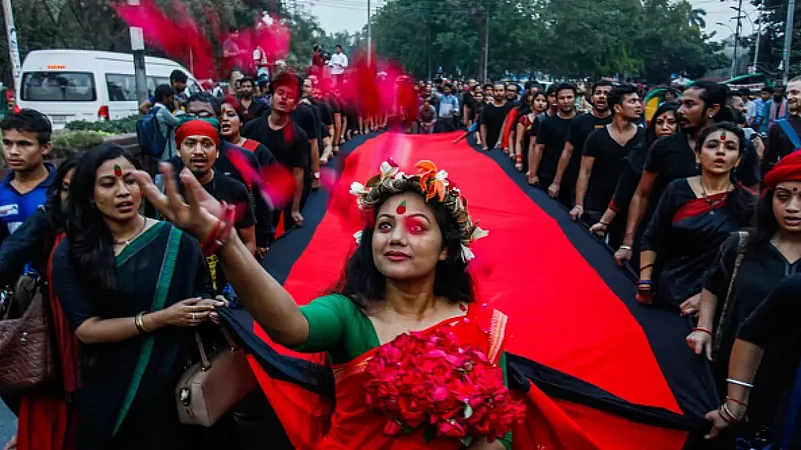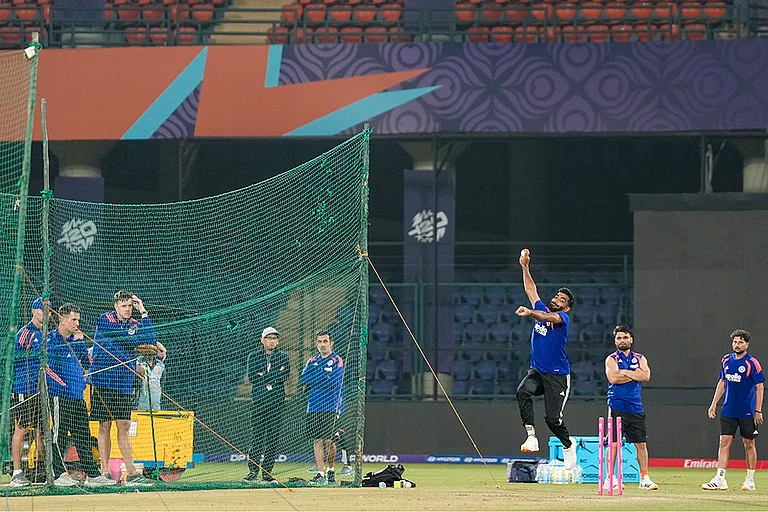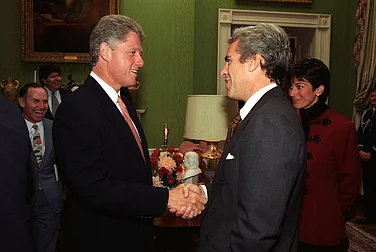Bangladesh is today commemorating 52 years of Independence. The celebratory parades and ceremonial events are taking place in a country that’s not mine.
Sitting in Delhi, miles away from Dhaka, I imagine the scene there —the boom of the 31-gun salute and the lyrics of the patriotic songs— with a lump in my throat. This year too, I get goose pimples thinking of the revelries in another land.
Why do the festivities feel like my own? The reasons go far beyond those inked by our foreign office wordsmiths. The incredible human cost the people of East Pakistan paid for the birth of their new country brings back memories of the past. The lines of Bangladesh were drawn with the blood of her people. I witnessed it first-hand.
I struck an emotional bond with Bangladesh within a few hours of the nation’s birth. It happened the instant I set eyes on the gruesome trail left behind by Pakistani Army and Razakars in Khulna district.
On May 20, 1971, gun-wielding soldiers butchered civilians in the small town of Chuknagar in the then-East Pakistan. Seven months later, I drove from the Nizam Palace on AJC Road in Calcutta (Kolkata) into Khulna sitting on a pile of relief material stacked in an Indian Army truck. The heritage building was camp headquarters for senior Indian officials managing the tide of refugees flowing in from then East Pakistan and Mukti Bahini logistics. My father, in charge of the refugee movement, shut the door on me when I landed at the Palace as a wet-behind-the-ears news reporter in search of an exclusive. It was out of bounds even for his daughter — more so because I worked for a daily newspaper. That was the typical bureaucrat of yore.
His driver took me home after I had sworn not to tell my father of his help. When the driver was summoned to Nizam Palace in the wee hours of December 16, 1971 I followed him. From the shadows, I saw army trucks parked there. I was smuggled into one ferrying relief material across the border. It was from the slogans, the cheering, the flag-waving crowds lining the roads, hugging and embracing strangers, flagging down the Indian Army trucks on the highway that we learnt that Dacca —now called Dhaka— had fallen. The nine-month-long bloody Bangladesh War of Independence had come to an end. The Mukti Bahini had won. Exhilarated, we sped into a country now free of tyranny and brutality.
We stopped 100 kms from Kolkata in Khulna district adjacent to the Indian border. Surprisingly, there was no euphoria here. On the side of the road stood men in tattered lungees and women with torsos wrapped in muddy sarees, as if carved in stone. They did not rush for food packets or bundles of clothes we offered. A man silently pointed to a brick structure across the fields.
It is then that I came face to face with the barbarity of Pakistani soldiers, the unimaginable horrors unleashed by the Yahya Khan regime under its Operation Searchlight. Naked, and bloated rotting bodies were floating in the ankle-deep water in the paddy fields. Some had eyes missing, gouged out by vultures on trees skirting the fields. Sacks had been thrown over some bodies to give a shred of respect to the dead women. The nauseating stench was unbearable but worse was to come. Behind the brick construction, a pump room of sorts was a well brimming with the dead. On the wall of the room were lines etched to count the bodies being stacked there.
The Khulna Well with its chilling wall markings made international headlines when the foreign media arrived from Dhaka later in evening. We were told that Pakistani soldiers after the shooting paid 4 annas to dispose of a corpse. Some were dumped in the Khulna Well as it was near Chuknagar. As details of Operation Searchlight, the Dacca University mass rape, and other atrocities heaped on Mujibur’s people came to light, the Khulna Well became my emotional connect to Bangladesh and its people. How can I not but celebrate their Independence with them?
March 25 is now observed in Bangladesh as Bengali Genocide Remembrance Day. Even after five decades, I can see vividly the Khulna Well filled with bloated stinking dead bodies. I still see the shock on the faces of the locals. It is easy to understand the deep pain Bangladesh must feel remembering the genocide and use of rape as a weapon of war by the Pakistani Army. My emotional link with Bangladesh does have a personal note but does so also for other Indians who played a supporting role in its birth.
Emotion was the leitmotif of India-Bangladesh relations under the rule of Sheikh Mujibur Rahman till his assassination in 1975, poignantly on India’s Independence Day, and remains so under Sheikh Hasina. It would be naive to believe that the ties stand singularly on the emotional plank and are not driven by geopolitical, economic, or other mutual interests and strategic priorities. But New Delhi-Dhaka ties have hit a low whenever the reins of Bangladesh have been out of the hands of Hasina and the Awami League.
There have been hiccups in the multifaceted relationship through Hasina’s four terms as Prime Minister of Bangladesh too. River water-sharing, killings of civilians allegedly by the Border Security Force (BSF), and energy concerns are politically emotive issues for the people of Bangladesh. Yet the ties, though stretched at times, have given India positives like Hasina handing over to India militants from the northeast and announcing a zero-tolerance policy for terrorists using her country for activity detrimental to India’s security.
The emotional thread in the relationship continues to hold its own and both sides obviously understand it is crucial to nurture.





















